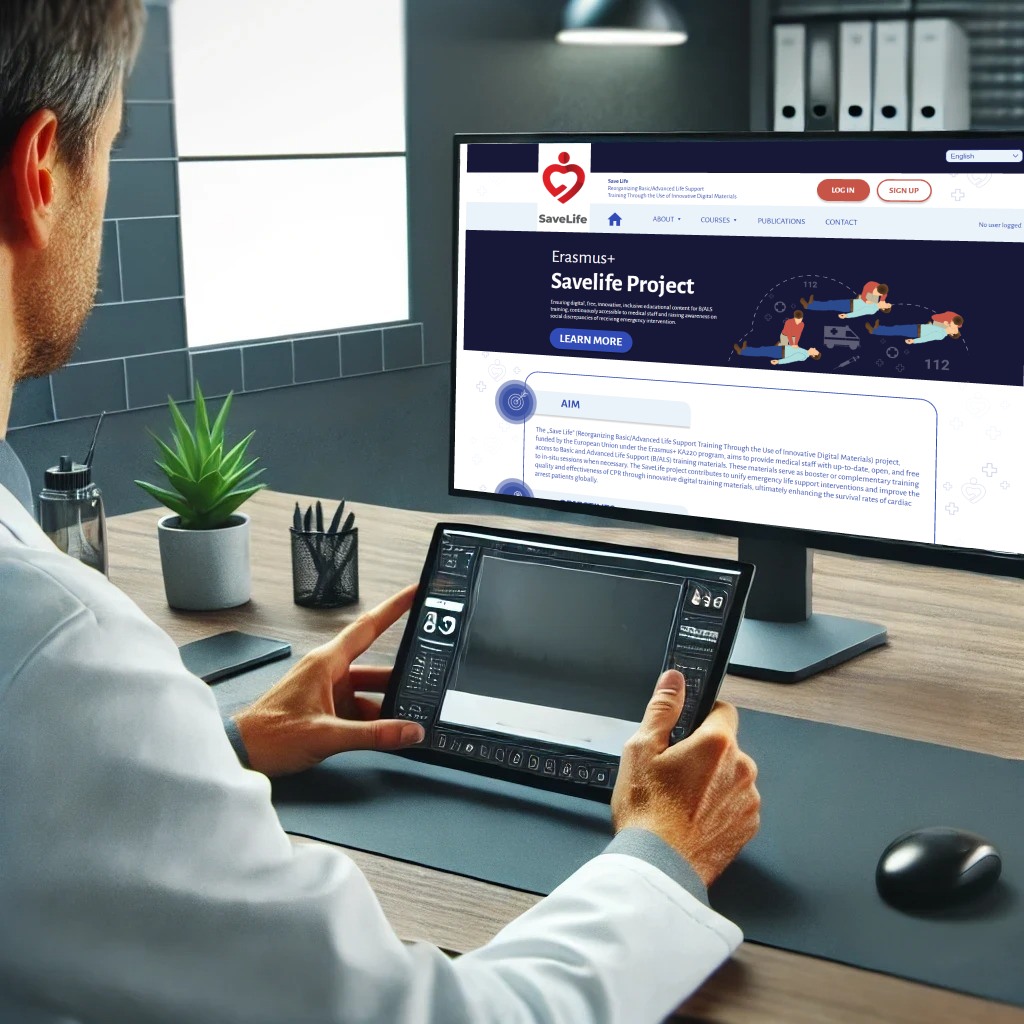The "Save Life: Reorganizing Basic/Advanced Life Support Training Through the Use of Innovative Digital Materials" (SaveLife) project, funded by the European Union within the Erasmus+ KA220 program, aimed to provide medical staff up-to-date, open, free access to B/ALS trainings that can function as booster trainings or complementary to in situ trainings when deemed necessary by the trainers. The main objectives of the SaveLife Project are to research best practices in online education for B/ALS trainings and to develop a comprehensive course plan that includes learning materials, mainly interactive videos and an e-book. The project brought together eight partner institutions from six countries: Yildiz Technical University (Türkiye), University of Health Sciences (Türkiye), Medical University Sofia (Bulgaria), Panepistimio Thessalias (Greece), Bukovinian State Medical University (Ukraine), Ss. Cyril and Methodius University In Skopje (North Macedonia), Politechnika Slaska (Poland), and RQ Consultancy Ltd. Co. (Türkiye).
Overall, the SaveLife Project targeted university staff, medical students, nurses, paramedics, and general practitioners who practice/will practice in high-risk areas. By focusing on these target groups, the project aimed to make a significant and lasting impact on B/ALS trainings across Europe. Basic Life Support (BLS) training is received by the medical students in the early days of their studies, this knowledge is supported and further developed through the Advanced Life Support (ALS) trainings. Basic and Advanced life support (B/ALS) is an important knowledge among physicians to deal with cardiac arrest.
The project will enable an international and inter-disciplinary analysis of current CPR practices in partnering countries. The team will benefit from good practices around the world to structure an innovative modular online course design to reach sustainable development and readiness of healthcare professionals on Basic/Advanced Life Support (B/ALS). The activities and end-product of the project will help to unify the emergency life support interventions through facilitating access to up-todate B/ALS training and online content prepared with the contributions of preeminent higher education institutions in the region.

